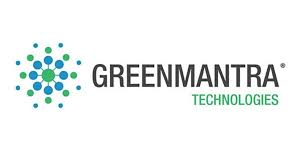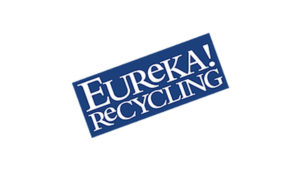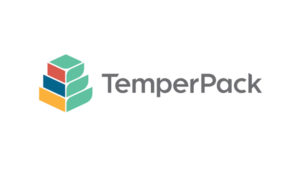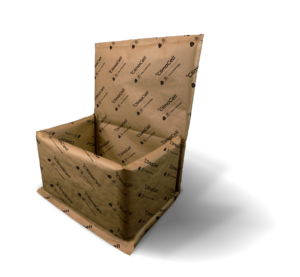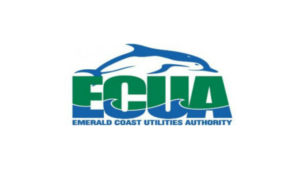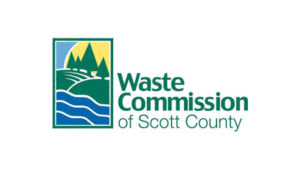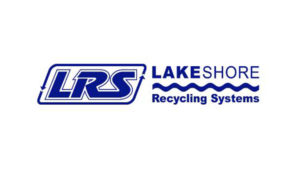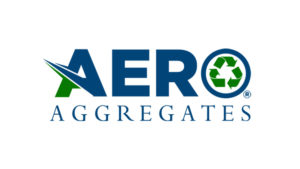Portfolio Company Spotlight
A feature on a Closed Loop Partners investment
From Yogurt Cups to Asphalt Roads
GreenMantra converts post-consumer and post-industrial plastics such as bottles, plastic films and bags, yogurt cups and other waste items into specialty polymer additives.
GreenMantra Technologies is focused on applying its upcycling catalytic technology to advance the circular economy. The first application of the technology, the production of polyethylene and polypropylene into an industrial wax used in construction products, has reached commercial scale. The team’s ceranovus PE and PP polymer additives are used in the construction of asphalt roads, roofing membranes and plastic composites.
Impact Goals
GreenMantra aims to significantly reduce the amount of plastic that ends up in landfills and oceans while also creating a value-added product for industrial applications. These products help improve the performance of customer’s products and processes, providing them with lower formulation costs and a more efficient manufacturing process.
The purchase of a new reactor has doubled the capacity for PE and PP specialty polymer additives.
For more information about GreenMantra Technologies, please visit their website.
Portfolio Company Spotlight
A feature on a Closed Loop Partners investment
Eureka! The Twin Cities Are Raising the Recycling Game
Guided by the motto: “waste is preventable, not inevitable,” the recycling company services Minneapolis and St. Paul, Minnesota.
Eureka aims to create and maintain healthy communities and local economies whilst enabling a healthy planet by keeping recycled goods in market. The team continues to be thought leaders, leveraging their operational experience to influence systems change by engaging with policymakers, industry leaders, and community advocates.
Highlights
90% of recovered materials are sold to markets in the Midwest
100% of materials stay within North America
100,000 tons of recyclables sorted each year
Since the Closed Loop Infrastructure Strategy provided financing to the recycling company, there has been a three-fold increase in polypropylene recovery.
With a long-term commitment to quality material, traceability in markets and education, they have continued to be resilient to changing policies. They maintain best-in-class operations, even in the wake of the National Sword. They completed facility upgrades, which include a new optical sorter and baler, which are increasing efficiencies and producing cleaner bales.
On-the-Ground Impact
Through funding from the Schmidt Marine Foundation, Eureka is continuing the application of AI technology to develop new metrics for recycling and its impacts. To connect to the growing interest in waste reduction in their home state of MN, they are investing in and expanding their ability to offer tours to community members, legislators and the packaging industry. They also hosted the fourth Zero Waste Summit, a community event focused on the supply chain of plastics.
For more information about Eureka! Recycling, please visit their website.
Portfolio Company Spotlight
A feature on a Closed Loop Partners investment
Protecting Pharmaceuticals, Meal Kits and More
TemperPack manufactures fully recyclable thermal packaging used to ship perishable goods such as food and pharmaceuticals. Their patented technology is displacing toxic polystyrene packaging.
In 2019, TemperPack made its biggest strides yet making a positive impact on the environment. In partnership with customers, including HelloFresh, Misfits Market and Diplomat Specialty Pharmacy, the insulation protected over 18 million shipments last year.
Another 2019 highlight includes the expansion of the Las Vegas facility. The team installed a new machine for manufacturing ClimaCell, which nearly doubles manufacturing capacity, allows for supply redundancy and facilitates quality customer service on the West Coast.
Impact and Accolades
7x throughput of material post-installation of Kraft Loop machine, financed by the Closed Loop Infrastructure Fund
18x less CO2e emitted in the manufacturing process of ClimaCell over Styrofoam
3 million cubic feet of plastic foam diverted from landfills, equivalent to 34 Olympic-sized swimming pools
TemperPack earned the “Widely Recyclable” designation from How2Recycle.
Looking Ahead
TemperPack is increasing the impact across the life sciences industry. With a growing stable of customers in the space today and more companies in the specialty pharmacy, genetic diagnostics, biologic medicines and pharmaceutical logistics sectors to seek out alternatives to plastic foam.
For more information about TemperPack, please visit their website.
Portfolio Company Spotlight
A feature on a Closed Loop Partners investment
Bottle to Bottle Recycling
rPlanet Earth is the world’s first completely vertically integrated manufacturer of post-consumer rPET.
The company was founded to provide high quality recycled PET to food, beverage and other consumer packaged goods companies. The result has been a much needed market for PET packaging collected from curbside recycling programs across California.
The vertically integrated plant’s extremely efficient manufacturing process results in packaging with the lowest carbon footprint. The team plans to build several more plants across the U.S. to establish the first fully integrated, coast-to-coast network of packaging manufacturing facilities to reuse post-consumer waste to create high quality rPET products.
Milestones and Highlights
In 2018, completed 302,000 square foot facility in Vernon, CA
The Vernon-based plant has an 80 million–pound capacity
Impact
A partnership with Green Impact Plastics will help divert a large portion of the 240 million pounds of thermoformed PET packaging containers currently sent to landfills in California, to be recycled and to reuse the material in new thermoform containers.
90% of plastic is not recycled; rPlanet Earth wants to change that. They envision zero plastic waste on our planet earth. Their goal is to be the leader in creating a truly sustainable, closed-loop system for the recycling and reuse of post-consumer plastics.
For more information about rPlanet Earth, please visit their website.
Portfolio Company Spotlight
A feature on a Closed Loop Partners investment
Building Infrastructure and Enabling Recycling
When the Infinitus MRF in Montgomery, Alabama suddenly closed, the Emerald Coast Utilities Authority (ECUA) and its neighbors were left without another sortation facility within a five-hour drive.
Rather than wait for another privately-owned MRF to enter the market, the utility decided to build its own single stream facility. A loan from CLIF provided about 30% of the required capital for the new facility, which opened in September 2016.
Since our funding, the ECUA MRF has become a regional asset for a region that had not previously had a long-term or reliable solution for processing recyclables. Escambia County has continued to expand its own collections and has entered into collection contracts with 11 municipalities in Florida and Alabama and three private haulers.
Impact Highlights
From January 2017 through September 2018, the facility processed more than 68,000 tons of materials, and grew the share of materials coming from nearby municipalities.
1,100,000 metric tons of GHG emissions avoided by 2026.
From January 2017 through September 2018, the facility generated $4.2 million in economic benefits and is expected to reach $20 million by 2026.
The Process
The facility has a processing capacity of 25 tons an hour, or 45,000 tons annually, to allow for 100% growth in ECUA’s collection stream.
The facility accepts paper, metal, glass and plastic, and equipment includes a Nihot glass cleaning system and a machine with bagripping teeth to release bagged materials. Both technologies are designed to maximize materials recovery and increase profitability in the commodities market.
As of September 2018, ECUA has generated $1.9 million in revenue, operating at a profit margin of 16% over the lifetime of the facility. Additionally, it has averaged a $30 per ton positive cash flow and if similar economics continue, ECUA would repay its debt and investment in the project in under 10 years.
The Results
Since its inception, the ECUA MRF is processing close to 39,000 tons a year, and in doing so, has generated three types of economic benefits:
- Savings to ECUA, in the form of avoided tipping fees. ECUA has avoided $2.3 million in tipping fees and generated $1.9 million in revenue, for an average total economic benefit of $96 per ton;
- Tipping fees collected from other municipalities and haulers;
- Revenues from commodity sales.
For more information about Emerald Coast Utilities Authority, please visit their website.
Portfolio Company Spotlight
A feature on a Closed Loop Partners investment
Creating a Campaign and Improving Infrastructure
With financing from the Closed Loop Infrastructure Fund, the Waste Commission of Scott County will increase participation and diversion with a new single-stream collection program for 48,500 households and an upgraded MRF, with more than double capacity to serve the Quad Cities region.
When the Scott Area Recycling Center’s aging recycling equipment needed to be replaced, the Waste Commission of Scott County and its intergovernmental partners, the cities of Davenport and Bettendorf, pursued the change from dual- to single-stream recycling. The change allows for the preservation of space at the Commission’s Scott Area Landfill, saves natural resources and allows for safer and more efficient collection by member cities’ public works departments. The Commission and its partners invested in larger capacity carts for curbside recycling, a redesigned single-stream MRF, and an extensive education campaign to increase diversion and participation in recycling.
Waste Commission of Scott County is a 28E, inter-governmental agency that was established in 1972 and reorganized in 1990. Our members include 17 communities and Scott County.
Impact Highlights
88,000 tons of recyclables diverted by 2025
$2.5M economic benefit to municipalities
248,000 metrics tons of CO2 emissions avoided by 2025
The Results
In its first months of operations in 2016, the upgraded MRF has seen a 61% increase in volumes over the same months last year. Davenport has seen a 77% increase in recycling volumes. Bettendorf, which previously had dual-stream carts, has seen a 36% increase. This is a model of how mid-sized communities can finance the deployment of a comprehensive recycling program that is profitable for the participating communities.
As more municipalities consider privatizing recycling operations, Scott County is a model for how public management can succeed.
What to look for:
- Committed and aligned public officials: The Scott County Board of Supervisors and Bettendorf and Davenport city leaders were instrumental in guiding the Commission’s transition to single-stream recycling, and supporting the bond measure for this project;
- Vertically integrated operations: The Commission manages sortation, as well as markets its commodities throughout the area. It also coordinates closely with intergovernmental partners, who manage collections;
- Solutions for a wide range of accepted materials: The Commission operates programs for household hazardous waste, e-waste, and appliances, in addition to the recycling center and landfill, which means cross-contamination has a greater chance of being handled appropriately;
- Sufficient volumes in the County with additional regional opportunities: With the upgraded MRF, the Commission is well-positioned to support the recycling needs of not only all residents of the County, but also those of the greater Quad Cities region and western Illinois.
Closed Loop Infrastructure Fund’s loan was a godsend. [The cities of] Davenport and Bettendorf, and the Waste Commission [of Scott County] had been talking about moving to single-stream for 10 years. As budgets were tightening, it wouldn’t have been possible to do this project without the Closed Loop Infrastructure Fund’s help.
Todd Jones, Superintendent of Services, City of Davenport, Iowa
For more information about Waste Commission of Scott County, please visit their website.
Portfolio Company Spotlight
A feature on a Closed Loop Partners investment
From 20 Tons Per Day to 20 Tons Per Hour
Lakeshore has the long-term contract to process residential and commercial recycling in the City of Chicago and surrounding areas.
The Closed Loop Infrastructure Fund participated in the financing of Lakeshore’s MRF, to increase profitability through an innovative business model that increased throughput from 20 tons per day to 20 tons per hour, with increased revenue opportunities and savings.
Since opening, Heartland, Lakeshore’s MRF, has been generating nearly $100 per ton in revenues from commodity sales. Operating costs per ton (including disposal of residue) are approximately $50 per ton, making Lakeshore’s net operating profit at Heartland nearly $50 per ton. In addition, the broader operations benefit from transportation and tip fee savings.
For nearly 20 years, Lakeshore Recycling Systems has provided recycling and 100% waste diversion programs to businesses and homeowners.
Impact Highlights
Heartland is projected to divert more than 110,000 tons of recyclables per year. By 2025, that will mean more than 1 million tons out of landfills.
3,030,000 metrics tons of GHG emissions avoided by 2025
The opening of the Heartland single-stream facility has created over 100 Cook County jobs
Lakeshore is continuously optimizing the Heartland MRF to recycle all that it can, which means that the team must regularly scrutinize the inbound materials mix coming from third-party sources and outbound commodities pricing.
As of August 2016, they’ve been able to maintain average revenue of approximately $100 per ton on outbound sales of commodities, with 92% of inbound material being single-stream. Unlike other facilities around the country, they are keeping glass in the single-stream mix, which they are able to sell to a nearby glass processor.
The Results
Lakeshore is a best-in-class operator with a relatively atypical model that serves as a strong example:
- Established success with pure play model: Lakeshore’s model is predicated on not having a landfill, and is therefore not “conflicted” over inexpensive disposal costs. The company has successfully managed other MRFs in the area prior to the Heartland facility.
- Integrated operations: Lakeshore operates residential and commercial hauling services, MRFs, C&D recycling and an organics program, creating leverage across businesses and greater opportunity for diversion. Heartland is co-located with the C&D operation, providing additional leverage.
- Significant market share: Lakeshore controls nearly one-third of the region’s material, ensuring sufficient volumes.
- “Good Neighbor” to local operators: Lakeshore attributes its success, in part, to its ability to maintain excellent working relationships with local private operators and municipalities alike; most are located within 20 miles of its facility
For more information about Lakeshore Recycling Systems, please visit their website.
Portfolio Company Spotlight
A feature on a Closed Loop Partners investment
Turning Glass Waste into Construction Materials
In the mid-Atlantic, AeroAggregates is changing the game for glass processors by producing an ultra-lightweight construction aggregate called foamed glass.
Foamed glass resembles volcanic pumice stone, but is strong enough to be used in a wide variety of road, building and infrastructure projects. AeroAggregates is the first U.S.-based manufacturer of the product, which is is less energy-intensive to produce and transport than other lightweight aggregates.
Impact Highlights
Mixed glass accounts for up to 25% of the stream of recycled materials by weight in the United States.
As of the end of 2018, AeroAggregates has diverted 32,000 tons of glass – or 146 million bottles – from landfill in the Philadelphia region. By 2025, it is estimated that over 260,000 tons will be diverted from landfills.
73,000 metric tons of GHG emissions avoided by 2025.
The greater Philadelphia area has 2.4 million households, and the typical household generates 100 pounds of glass recyclables a year, which translates to 120,000 tons of recyclable glass available each year for reuse.
Foamed glass weighs 85% less than traditional aggregates, which makes it less expensive and polluting to transport.
The market for lightweight aggregate alone is estimated at 8 million tons per year.
Key to the Closed Loop Infrastructure Fund’s investment strategy is developing new end-markets for low- and no-value post-consumer recyclable commodities, including glass, while creating value throughout the supply chain.
An investment in AeroAggregates is accomplishing both aims. AeroAggregates is the first company of its kind in the United States, using glass to produce an ultra-lightweight construction aggregate and in doing so, creating a valuable new revenue stream for local MRFs.
By closing the loop for glass, AeroAggregates is also changing the profitability of materials recovery facilities (MRFs). Aero’s business model recognizes that MRFs need to receive value for their glass, which creates two streams of economic benefits: fees for the purchase of glass, and avoided landfill tip fees for glass that MRFs may have previously been unable to sell because of limited end-uses.

